What if living to 100 was the norm rather than the exception for humans? Here are 10 companies using university research to make it happen.

The oldest person to have ever lived was Jeanne Calment, who was able to celebrate her 122nd birthday in 1997 before dying six months later. Yet even living to 100 is still rare and living much longer than that is so exceptional, the names fit neatly into a table on Wikipedia.
But beyond the headline-grabbing interviews — Harvard University biologist David Sinclair is infamous for saying his biological age is a decade younger (43 rather than 53) — and dubious wellness supplements claims, there is serious science being conducted into expanding the “healthspan”. This is not so much about prolonging life but about increasing the number of years that can be enjoyed free from age-related diseases. Eliminating such diseases will itself lead to a longer life.
From using deep space exploration research to finding an Amish family that lives much longer than others in their community, here are 10 companies founded by university researchers to bring about a future where age truly is just a number.
New Frontier Bio
Founded: 2020
Funding to date: $8.9m
Location: US
Website: NewFrontierBio.com

New Frontier Bio is tapping into biopharmaceutical and biotech research to create consumer products — initially focusing on skin health under a brand called Aramore.
Aramore relies on a natural compound called nicotinamide adenine dinucleotide (NAD+), which plays a role in cellular functions. A decline in NAD+ has been identified as accompanying ageing in humans, and leads to visual signs of age like wrinkles, dehydrated skin and dark spots. But NAD+ itself is too big a molecule to be absorbed by the skin, so the Aramore products — a range of supplements and topical serums — instead contain a complex of precursors and nutrients to give the body the building blocks to create NAD+.
New Frontier Bio was co-founded by Harvard researchers Anna Mandinova and Sarina Elmariah (who subsequently joined UC San Francisco) and MIT’s Brad Pentelute. They were joined by Diana Saville, the co-founder of neuroscience accelerator BrainMind. Bringing them together was fellow co-founder Stephen Kennedy Smith (fun bonus fact: he’s the nephew of US president John F. Kennedy).
The company has raised $8.9m in funding from investors and families in the US, Australia and Asia — though their identities appear not to have been disclosed.
Healthy Longevity Clinic
Founded: 2021
Funding to date: $4.6m
Location: Boca Raton, US and Prague, Czech Republic
Website: HealthyLongevity.clinic
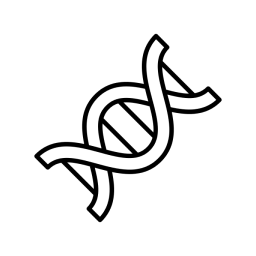
Healthy Longevity Clinic is directly linked to one of the most active investors (and a backer of several companies on this list) in the space: Longevitytech.fund. The company was co-founded by the fund’s managing partner Petr Sramek to give customers access to cutting-edge therapies and diagnostics faster than would be possible through the traditional health systems.
It offers several distinct programmes to customers, focused on brain health, heart health, cellular regeneration, regenerative aesthetics (essentially, getting rid of visual signs of age) and immune health. Its monthly, quarterly and yearly diagnostics offering spans a total of 26 categories (though not all are available at both the Boca Raton and Prague clinics) from bloodwork to gut microbiome analysis to whole-body MRI scans to detect asymptomatic cancers.
Healthy Longevity Clinic’s chief scientific officer is Morten Scheibye-Knudsen, an associate professor at the University of Copenhagen’s Centre for Healthy Ageing where he is researching the cellular and organismal consequences of DNA damage to develop interventions.
The company has raised $4.6m, according to deals database Crunchbase, though its claims are unsourced.
Cosmica Biosciences
Founded: 2022
Funding to date: Undisclosed
Location: US
Website: Cosmica.bio
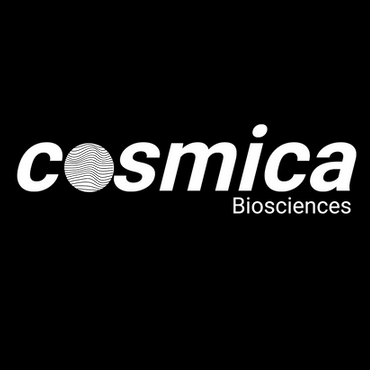
Cosmica Biosciences was co-founded by David Furman, director of the 1,000 Immunomes Project — a large-scale, longitudinal study of immunology and ageing at Stanford University’s School of Medicine — Weill Cornell Medicine professor Christopher Mason, the Buck Institute for Research on Ageing associate professor Daniel Winter and Scott Ginebaugh, who previously worked for blood stem cell therapies developer Garuda Therapeutics.
Cosmica — its name hints at it — is hoping the age of deep space exploration will herald new insights into ageing. Specifically, it says because exposure to microgravity and radiation in space accelerates the rate of cellular and organismal ageing, this presents an opportunity to expedite human ageing studies and evaluate anti-ageing therapeutics.
Longevitytech.fund lists Cosmica in its portfolio, but it’s unclear how much the company — a spinout from the Buck Institute — has raised.
Crosshair Therapeutics
Founded: 2021
Funding to date: Undisclosed
Location: US
Website: CrosshairTx.com
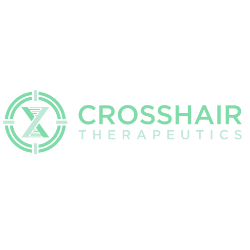
Crosshair Therapeutics has developed a technology platform, dubbed D-Chain, that it hopes will enable precision targeting for immunotherapies. It uses computational modelling to design its therapeutics and an engineered adeno-associated virus for precision drug delivery.
It says its approach presents a range of advantages — for one, it claims therapeutics can be designed in as little as two weeks, and for another, it says it can target previously undruggable targets by encoding its peptides as DNA like a gene therapy. It’s looking to treat ageing, cancer and other, as-yet-unspecified conditions.
If it all sounds a bit too good to be true, the co-founders bring the right expertise: Michael Snyder is chair of genetics and the director of the Center of Genomics and Personalized Medicine at Stanford University. Michael Bruno, chief executive, was a researcher at Yale, Stanford and the Molecular Medicine Research Institute.
Hearty
Founded: 2021
Funding to date: Undisclosed
Location: US
Website: JoinHearty.com

Hearty is building a comprehensive offering focused on longevity, from a proprietary method and curriculum to teach doctors about longevity to a vertically integrated platform with biomarkers, wearables and diagnostic tools.
It operates a membership model where customers gain access to consultations focused on medical history, lab analysis and a tailored wellness plan, a genetics and biological age review, nutrition and wearables and exercise evaluation.
Hearty’s co-founders include Ashish Narayan, the associate dean for research technology at the Icahn School of Medicine at Mount Sinai. It doesn’t appear to have disclosed any funding yet.
Matrix Biosciences
Founded: 2021
Funding to date: $300,000
Location: US
Website: MatrixBio.co
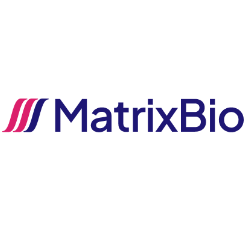
Matrix Biosciences was created by VitaDAO, a community collective that funds longevity research projects. VitaDAO raises donations from supporters and lets them vote on which scientist-vetted longevity research projects to fund. Profits are funnelled back into VitaDAO’s coffers to support future projects. To date, it’s funded 22 projects and invested more than $4.2m.
Matrix Bio is the first company coming out of VitaDAO and it is commercialising research by Vera Gorbunova, the co-chair of the University of Rochester’s Aging Research Center. The company is looking to develop high molecular weight hyaluronic acid (HMW-HA) therapeutics to treat ageing-related diseases and cancer.
Studies have shown an abundance of HMW-HA in naked mole rats makes them resistant to cancer and means they live up to 40 years — as opposed to just three years for other rats.
Matrix Bio has received $300,000 from VitaDAO.
Matter Bio
Founded: 2022
Funding to date: Undisclosed
Location: US
Website: MatterBio.com

Matter Bio is a holding company for longevity spinouts, having assembled more than 30 scientists — including serial entrepreneur George Church, a faculty member at both Harvard University and the Massachusetts Institute of Technology.
Church has already founded a company under the Matter Bio banner: Spellcheck Bio. It is commercialising a new form of DNA editing that checks for somatic mutations before fixing them — making edits only when needed.
It falls squarely within Matter Bio’s focus: preserving genome integrity as humans age (damage and mutations to the genome over time cause disease).
Matter Bio’s two other current companies include Loki Therapeutics, a bacterial platform to visualise and eradicate tumours and metastases (founded by Albert Einstein College of Medicine associate professor Claudia Gravekamp), and MutagenTech, which uses single-cell sequencing to detect point mutations orders of magnitude cheaper, better, and faster than competing methods (co-founded by Jan Vijg and Alex Maslov, both researchers at the Albert Einstein College of Medicine).
LifeSpan Vision Ventures invested an undisclosed amount in Matter Bio in October 2023.
Renewal Bio
Founded: 2022
Funding to date: Undisclosed
Location: Israel
Website: Renewal.bio
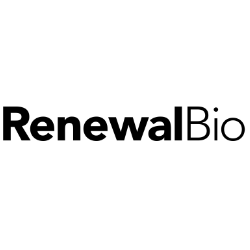
Renewal Bio has created an artificial womb that can grow mouse stem cells into embryos with beating hearts, flowing blood and cranial folds that stay “alive” for several days. It is trying to do the same with human stem cells.
Based on research at the Weizmann Insitute of Science by Jacob Hanna, being able to create functioning embryos in a mechanical womb — without any need for insemination — would provide a huge leap forward in 3D-printing complex organs for patients.
But it goes beyond an outright need for transplants for survival: gonads could be grown to give an infertile woman the chance to produce eggs or reboot the immune system in elderly people.
The company has raised an undisclosed amount from NFX, a pre-seed and seed fund that also runs a private community of founders and runs programmes like executive coaching for its portfolio companies.
Rockfish Bio
Founded: 2021
Funding to date: Undisclosed
Location: Austria
Website: RockfishBio.com

Rockfish Bio is working on senolytic compounds — small molecules that could induce the death of cells that have stopped dividing (senescent cells) and thereby improve human health. The startup initially focuses on chronic kidney disease because the compound appears to be especially effective in eliminating senescent renal epithelial cells, which are involved in the kidneys’ blood filtering process.
The approach could also have applications in increasing the viability of kidney donations as research has shown the quality of such transplants was correlated to the amount of senescent cells.
Rockfish Bio was co-founded by Johannes Grillari (an associate professor at the University of Natural Resources and Life Sciences, Vienna — also known as BOKU) and Ingo Lämmermann (who was a post-doc at BOKU before becoming Rockfish’s chief scientific and chief operations officer). Otto Kanzler, an experienced CEO in the anti-ageing field, serves as chief executive.
Austria Wirtschaftsservce, the country’s federal development bank, has provided pre-seed financing, but further details could not be ascertained.
Zoe Biosciences
Founded: 2021
Funding to date: Undisclosed
Location: US
Website: ZoeBiosciences.com
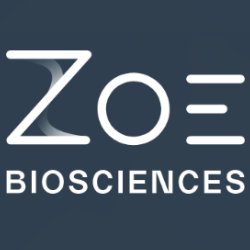
The Amish might not be the first people to come to mind when you think of cutting-edge science, but it turns out there’s one extended family in an Amish community in Indiana that, on average, lives ten years longer with fewer chronic diseases like diabetes. They have a null mutation for a gene that codes for protein PAI-1 (in other words, these people simply don’t have a functioning PAI-1). PAI-1 is known to drive biological ageing.
The discovery was made by Douglas Vaughan, who now serves as chief scientific officer of Zoe Biosciences. He’s also chairman of the Department of Medicine and the Irving S. Cutter Professor of Medicine at Northwestern University and the physician-in-chief of Northwestern Memorial Hospital.
Through his aptly named Amish Longevity Platform, Vaughan is looking to develop drugs that recreate the effects of the mutation.
Zoe Biosciences has raised an undisclosed amount of capital from the Longevitytech.fund.
Disclaimer: This list is for informational purposes only. It does not constitute investment advice.









